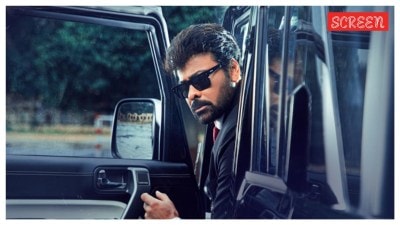Day trippers
...

Both are strictly banned in Rishikesh and Haridwar. But one town8217;s poison is another one8217;s meat. Alcohol and meat sales have been steadily climbing up in Raiwala. After sunset, its two booze shops and six-seven dhabas come alive with animated conservation over fish tikkas and chilled beer.
8216;8216;Raiwala attracts drinkers from both Haridwar and Rishikesh besides those using the national highway,8217;8217; says Rameshwar Havelia, owner of Doon Distilleries. In fact, this shop fetched the second highest licence fee for a country-made liquor vend in Dehra Dun district. 8216;8216;For the current year the vend has a licence fee of Rs 3.72 crore while it was Rs 4.03 crore in the previous year,8217;8217; says Ram Kumar Jaiswal, the contractor who owns the shop.
Raiwala has just two alcohol shops 8212; one selling country made brew and the other Indian beer, rum etc. or what is known as Indian Made Foreign Liquor IMFL. This shop got a licence fee for Rs 90 lakh this year, the third highest in the district. Both make a neat profit.
Raiwala8217;s clientele is a diverse mix of residents of Haridwar and Rishikesh and of tourists seeking a change from their daily diet of religious discourse and Choti Ram8217;s aloo-poori.
If you stand and look around in Raiwala you will see the curious phenomenon of buses slowing down, people hopping off and then on again. No, despite the Uttaranchal government8217;s grand visions of making the state another Switzerland, these are not hop-on-hop-off tourist buses. These are just plain old state buses coming or going to the other five districts of Garhwal where country liquor is prohibited. When Raiwala comes, the conductor announces loudly that the bus is stopping so whoever wants to stock up, please get down.
But it was not always famous for just this. The town on the banks of river Ganges on the Rishikesh-Haridwar highway found its place in history more than a century ago with its association with
F E Wilson, an Englishman who settled in the area, married a local girl and came to be called Pahari Raja.
Wilson got a licence to cut trees in the higher reaches of Garhwal. The chopped wood was then floated in the Ganga and it was finally recovered at Raiwala, as the river entered the plains. The trees are no longer cut but the sale depot of the forest department is still at Raiwala as is the army cantonment.
But Raiwala8217;s drinking days have overshadowed its past. No one is complaining though, besides the police. 8216;8216;It is a big problem for us, taking care of drunkards here, particularly after sunset,8217;8217; says Naveen Chandra, the SHO at Raiwala. The authorities also have to check liquor smuggling from Raiwala to Rishikesh.
But Raiwala has its uses. It allows the virtuous towns to remain virtuous. To others it gives a spiritual contentment that comes only on a full stomach and an induced high.
- 01
- 02
- 03
- 04
- 05































